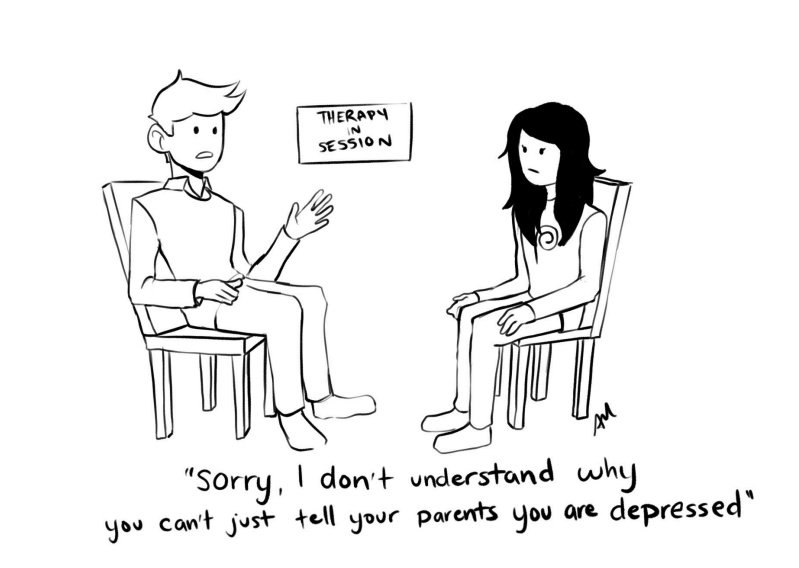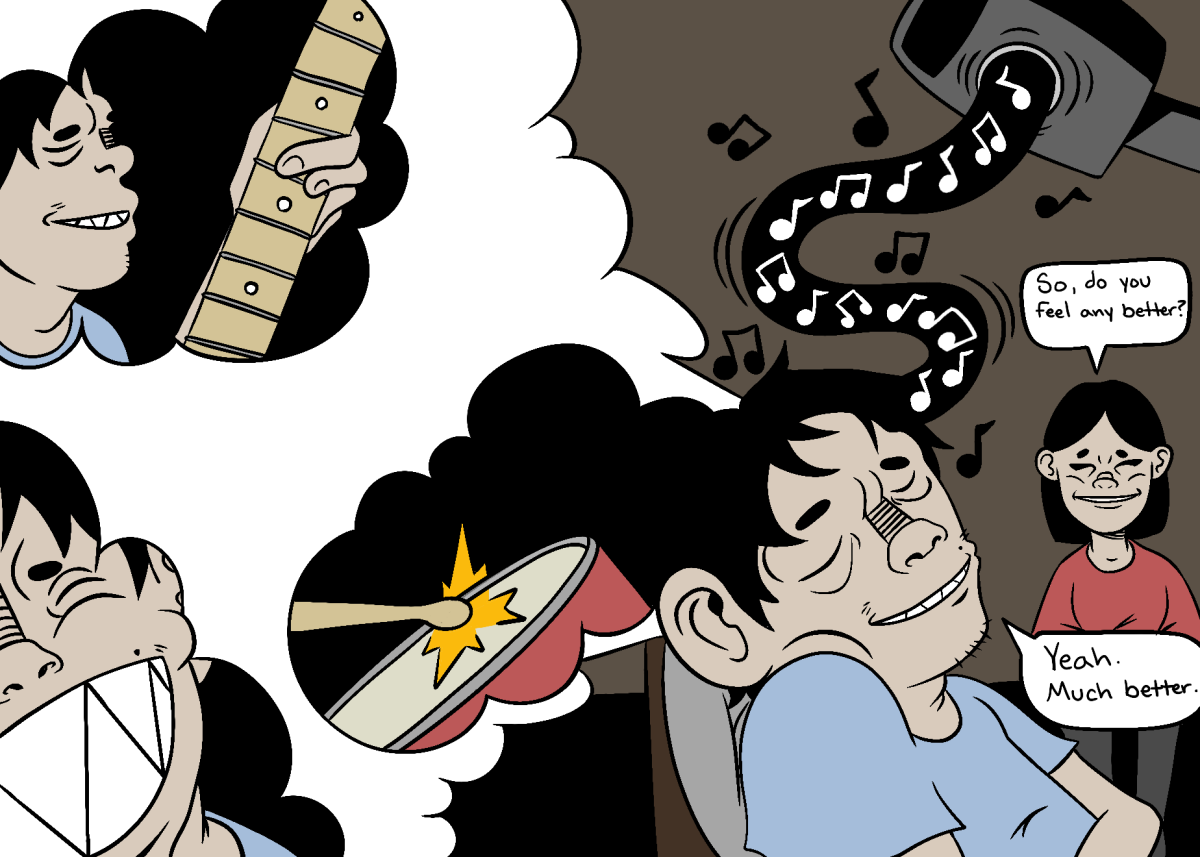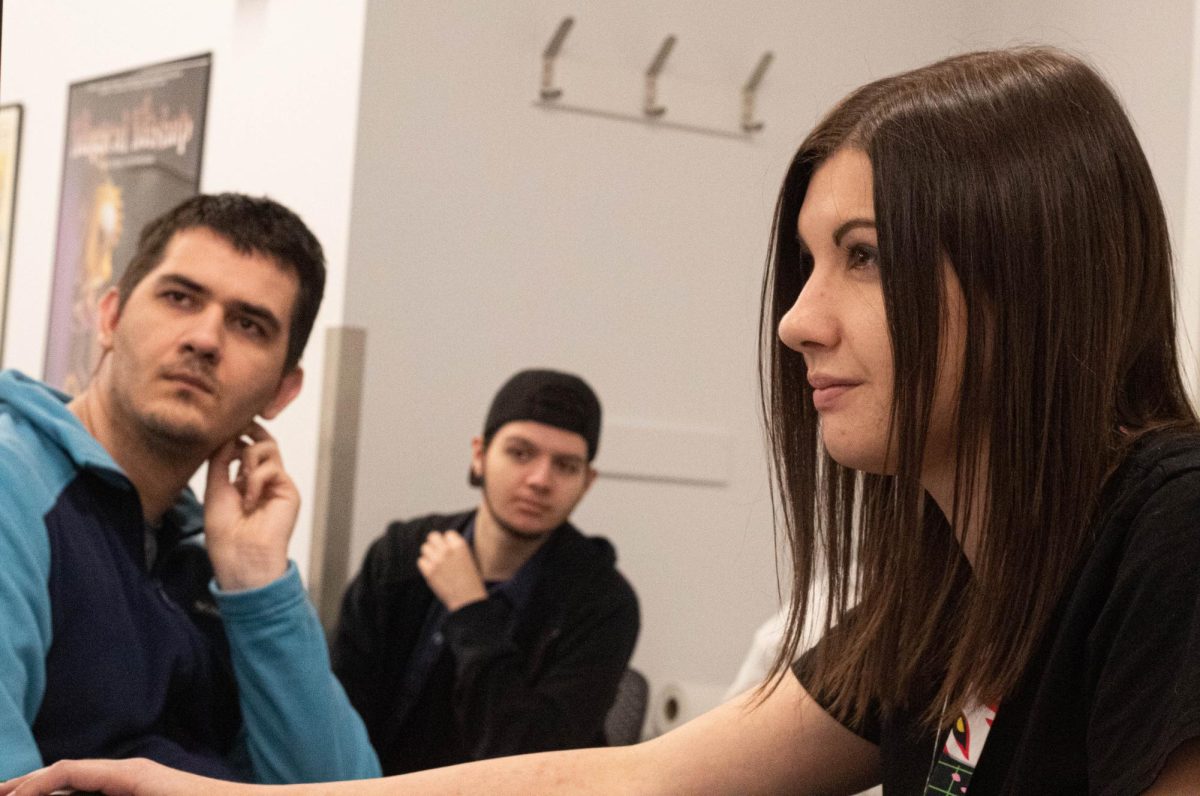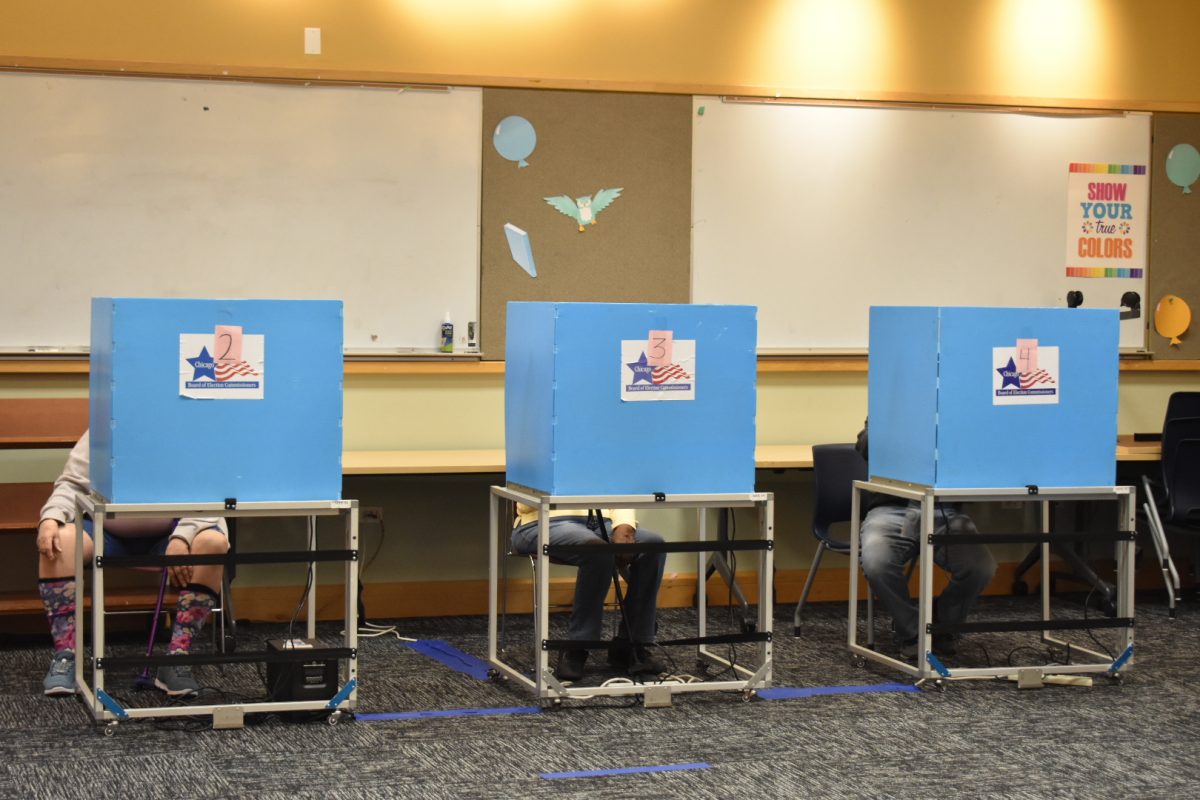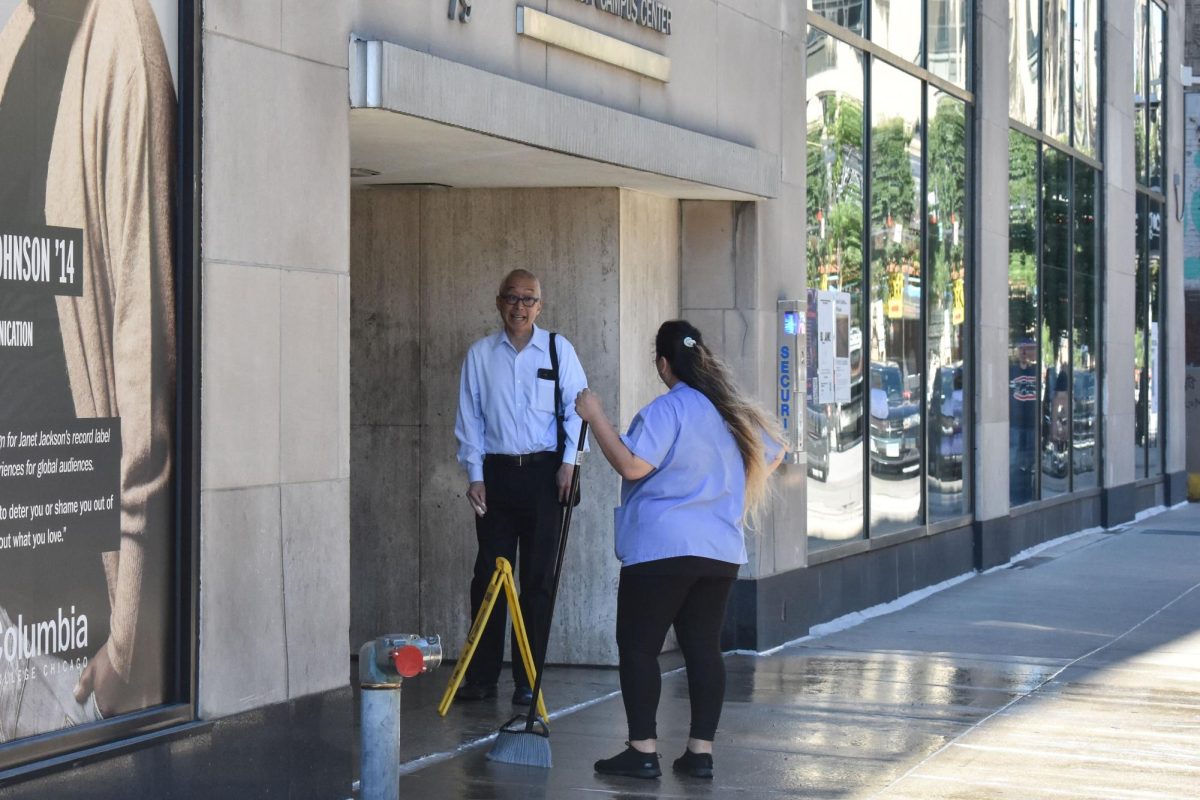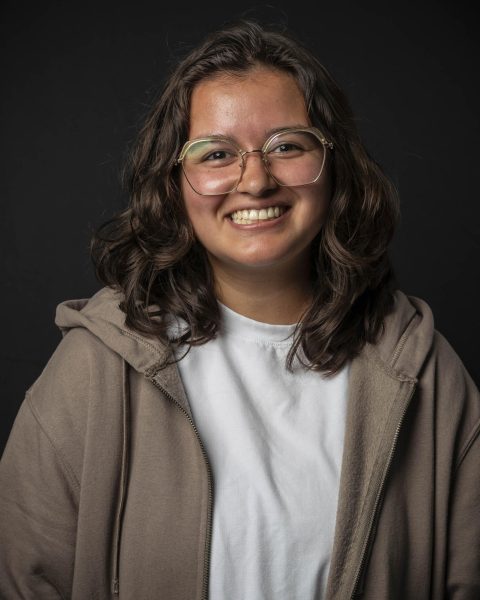MENTAL HEALTH ISSUE
Columbia is taking a pioneering step toward inclusive mental health care by hiring a diverse group of counselors and providing them with ongoing training.
As the Counseling Services rebuilds after the pandemic, recognizing the intersection of mental health and diversity has been a key part of that process. The office was also largely untouched in the draft Presidential Advisory Report about recommendations for budget cuts, reflecting their vital role on campus.
The big picture:
The emergence of culturally responsive mental health services reflects a growing recognition of the influence of culture on mental well-being. This approach acknowledges that cultural diversity significantly shapes how individuals perceive, experience and seek support for their mental health.
It is often difficult for Black, Indigenous or other students of color to access mental health care from providers who can understand their unique experiences. Having a mental health provider who can relate to their experiences can make a significant difference during treatment.
Growing up in a family immersed in Japanese culture, Maika Shibata, a senior filmmaking and graphic design major, said she felt secure and comfortable in her experience at the Counseling Services at Columbia.
“I specifically asked to speak with an Asian-American woman because I would feel more comfortable talking to a woman about my assault and someone who would also understand my background from personal experience,” Shibata said. “I was able to get exactly what I requested and wouldn’t have wanted any other therapist.”
Shibata therapist’s use of phrases and sayings from Eastern Asia, familiar from her childhood and her mother’s words, added an extra layer of security and comfort.
“It’s something I wasn’t aware I desperately needed until I had it,” Shibata said. “It really enhanced my therapy experience and also allowed me to open up more and share more about my background and history because I knew I would be understood.”
Through its diversity statement, Counseling Services is committed to providing services that acknowledge and promote the diversity of the students. They practice cultural humility, honoring individuality and creativity in therapy.
What they did:
Britt Hodgdon, director of Counseling Services at Columbia, said there is a growing area in the counseling profession.
With a generationally younger staff and therapists, she says they are trained in a different way.
“They are more culturally flexible,” Hodgdon said. “They’re considering power and privilege in the room.”
According to Hodgdon, therapists must undergo good supervision to get trained and use the learning in their individual work through a supervisory relationship. This helps them to stay unbiased and become competent therapists.
“Supervision is still the place where we should all be on my team, looking at how power, privilege, culture, race, all of these things are coming up and how they’re being used in the room,” she said.
Richard Chin, coordinator of Counseling Services, described a few ways the college has worked to ensure students receive affirming and relevant care.
“First, during the interview process for staff and interns alike, candidates are asked about their knowledge and experience applying culturally responsive practices in their previous work history,” he said.
They have also received training on serving specific populations such as Black, Latinx and LGBTQ+ communities at the college.
“We engage in regular supervision and consultation to examine our practices as we are engaging with students to ensure we are engaging in ethical and meaningful work,” Chin said.
Hodgdon also said the counseling office is working to train as many people on campus in Mental Health first aid as possible. This training program is designed to teach a layperson how to identify signs of a person experiencing a mental health issue, approach a person with care, and connect them with resources.
“What we are finding is a need for people to be increasingly trauma informed and how they do that,” she said. “We have a lot of students who are remarkably ready to sit with other people’s mental illness or to sit with their trauma.”
The purpose is not to deputize community members as therapists or professionals but to help people feel more comfortable discussing mental health issues and support each other in connecting with resources like Counseling Services.
“We have been able to train quite a few student-facing staff throughout the college as well as our RAs,” Chin said. “We are hoping to expand the number of staff trained, as well as to open the training to more students.”
What they found:
They discovered that students are uncertain about how to establish boundaries while still taking care of themselves.
“There’s some generational progress happening here, in which students are more likely to go up and engage [with] someone who is hurting or struggling, but then how do they care for themselves in the midst of that?” Hodgdon said.
Chin said students seem to do better if they feel their salient cultural identities are supported, and they can find ways to incorporate those into their lives.
“Sexism, homophobia, etcetera, can be present in a cultural context, so approaching these topics with an understanding of intersectionality is important,” he said.
A challenge can still arise in situations where a therapist lacks extensive knowledge of cultural identity.
“In these situations, there is a necessary balance of having the student take the lead in discussing it and how it relates to them and avoiding the student’s session turning into a lesson for the therapist,” Chin said. “It is these situations where it’s important for the therapist to know the limits of their knowledge and ability to absorb new knowledge, and work to ensure the student is getting appropriate support.”
By the numbers:
According to the United States census, the U.S. employed 124,485 mental health counselors in 2021. Of these, 76.4% were women, and 23.6% were men. In terms of race and ethnicity, the majority of mental health counselors were white, comprising 66.1% of the workforce. Black individuals constituted 19.2% of the workforce, while 7.1% were individuals of two or more races.
Columbia has a team of seven staff members who offer counseling services to the students. Five of these members are women, and two are men. Additionally, five members identify as white, while the remaining two identify as belonging to other ethnicities. The majority of the counseling staff comprises white women, accounting for four out of the seven members.
There is a significant gender and racial imbalance in the mental health counseling workforce. These figures highlight a potential lack of diversity within the mental health counseling profession, which could impact the provision of culturally responsive care, as individuals from diverse backgrounds may face barriers in accessing care from providers who understand and can relate to their unique cultural experiences and perspectives.
Between the lines:
Chin said in the broader context of mental health service providers, all staff and interns are educated on culturally responsive care within the National Board for Certified Counselors or the Association of Social Work Boards framework in their master’s program.
“After graduation, counselors and social workers have to adhere to their respective professions code of ethics, which in both cases codify cultural responsiveness as a core tenet of ethical care,” he said.
As part of the licensing process, counselors and social workers must engage in continuing education, which includes workshops, classes and reading, to maintain their license to practice therapy.
The services at the counseling office are specific to the relationship between a particular student and the therapist, with the student in the lead. Some identities are more salient than others at any given time, so part of the work is following the student, listening to what support they need or are looking for, and suggesting some they might be aware of.
What students are saying:
Sarmite Poga, first-year film and television major from Latvia, started going to counseling on campus this semester with “no expectations” before coming in since she previously had only seen medical doctors.
“I come from quite a strict and socially ignorant country. People there don’t believe in mental health as it is a post-Soviet Union country,” said Poga. “This mentality definitely has not been great for me as I have severe panic disorder and only started treating it last year when things got out of hand.”
Overall, Poga said she had a positive experience.
“I feel like the counselor respected me as she asked me about my culture and how I feel adjusting in my new environment,” she said. “From the very beginning I felt safe talking bout my mental [health] issues because before we started, she asked me some questions about where I am from, she learned how to pronounce my name and said that my name is my name, and I should not feel like I need to change it because people can’t pronounce it.”
Ana Salazar, a junior communication major, grew up in a very Catholic family.
“They are still very religious and rely their faith on God,” Salazar said. “Back in Ecuador, going to counseling services is not normalized to the max, but luckily, my mom is aware of the mental health crisis.”
Salazar said going to counseling on campus has helped.
“I felt like I was being genuinely listened to,” she said.
Copy edited by Patience Hurston
Resumen en Español:
La aparición de servicios de salud mental culturalmente sensibles muestra un creciente reconocimiento de la influencia de la cultura en el bienestar mental – reconoce que la diversidad cultural moldea cómo las personas perciben, experimentan y buscan apoyo para su salud mental.
Para los estudiantes negros, indígenas u otros estudiantes diversos, a menudo les resulta difícil acceder a la atención de salud mental de proveedores que puedan comprender sus experiencias únicas. Tener un proveedor de salud mental que pueda relacionarse con sus experiencias puede marcar una diferencia significativa durante el tratamiento. Columbia está contratando a varios consejeros que es un paso hacia la atención inclusiva de la salud mental. Los estudiantes en el campus le dijeron al Chronicle que han tenido experiencias positivas con los servicios de consejería en la universidad.
Resumen en Español por Miranda Bucio










